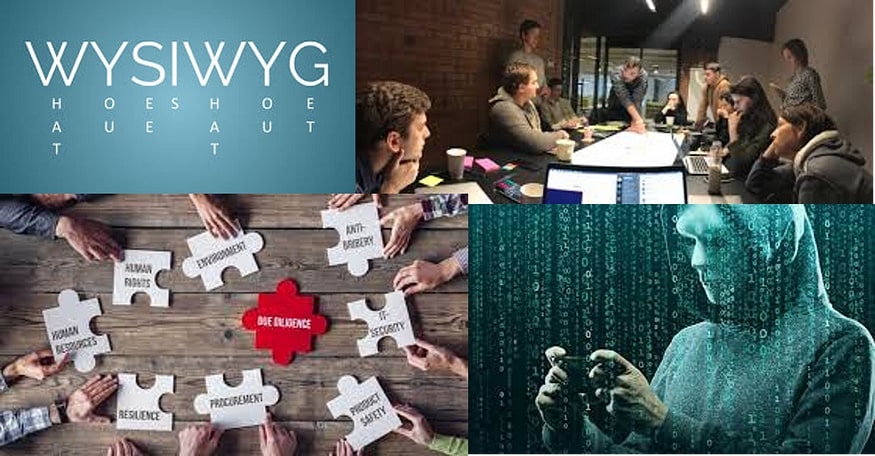R.I.P. WIZ-EE-WIG Diligence

WYSIWYG — What you see is What you get.
“We are looking for growing my profitable business beyond India and will need external partners now to grow and also give our early stage investor an exit. Can you help us build this together and then also get your contacts working for us? Couple of years back, our deal was actually done, but then the Global acquirer itself got merged and the team could not get the approval.” Interesting points amidst a conversation with the key family members, the “early investor” and management of a SME business.
We have every thing ready and our finance team can show you the numbers, the projections. As the team walks me through the preparedness, I ask “naively” — are these the ones that you showed the global acquirer/investor? One of the finance team leaders said — no these are new, we also have one for the bank and one which “Sir” has in his laptop. “ Early Investor “ immediately intervenes and suggests that as pioneers in the industry they have been innovating and investing in R&D much earlier than competition who also have got Y multiple and from our expectations this should be reasonable. I nod towards the “early investor” (in my head i interpret : his exit returns, fund life, portfolio situation, carry). I continue to ask — I presume you have audited numbers for your EBIDTA which you are using in the excel sheets. “Sir” says yes ofcourse, though some variation could be there earlier “you know how it is” (Me attempting a straight Poker face, my eyes rolling).
Leading conversations that trigger a set of responses (or reactions) are many times leveraged by professionals to do ‘soft diligence’. When its also done in the place of work — you have all senses working and observing things around you and making mental maps of various aspects. As you cover different aspects of business and interactions over time, they create flags in the minds of the team looking to invest/acquire — to look at it as an opportunity and continue to be the sponsor or to plan your withdrawal reasons from this engagement. What we thought is not what it is. Keeping the communication though the process does matter. Intent is valuable, acting on that intent creates processes and systems which can be demonstrated to work in a company. Intent to also change, even if things were done in the past, if demonstrated by action is believable.
Diligence is always done. Agreed. But there is a good opportunity to reduce the time for diligence if you as owner/management prepare a company earlier. One my bosses always used to push us with ABC — always be closing and thats also true when you are looking to close the deal with your prospective investor — financial or strategic. Lesser the variables or friction observed the more chances of moving up the deal priority in the buyer/investor. And more likely the terms remain the same
Not to mention external factors and economic uncertainty which I have seen many times put pressure on a signed MOU not leading to agreement stage and closing as its taking too long. Interest on deal wanes if this drags, the company starts to work on the needs and then scrambles to start defending points rather than sharing facts or making available information.
Yes lawyers do rightly put in a “long stop date” in but you need to reach that definitive agreement stage and then plan for closing. Being better prepared earlier can also allow you to make or reverse decisions across a financial year thereby addressing aspects of cost of compliance/taxation — but setting the ship right. Leveraging the insights from ‘gap’s can actually help management in better decision making and weed out inefficiencies to then support the “reasonable valuation” ask. Pre-investment preparation could start much earlier, not when you receive a termsheet or an MoU.
When you are prepared it shows. While it does not assure you of a premium, it saves you a discount and you are more likely to get “benefit of doubt”. And that helps you to stand out from the clutter around. Getting investor is not, in my way the approach to look at this. How is a founder/management team ready to leverage the investor in their growth could be a better perspective in approaching this. You get news articles when $bns of dry powder exists and chasing the India opportunity. Mind you most times they do have an intent to deploy but they are constrained, in finding the right founder + company which is also ready to leverage equity investment apart from their entry valuation. Help them, to then help you benefit from value creation.
This is not an AI generated post , neither which has leveraged any AI. Mistakes are mine alone.
You can follow me at — https://www.linkedin.com/in/sameerkarulkar/ or https://twitter.com/KarulkarSameer
Sameer Karulkar is the Founder and Partner at Coverpage Ventures Advisory LLP.
Latest Insights
-
 Exits v/s Exitability at each stage — Could this be a better narrative for the industry? Updated On : January 1970
Exits v/s Exitability at each stage — Could this be a better narrative for the industry? Updated On : January 1970 -
 You are a Player; But Understand the Game Updated On : January 1970
You are a Player; But Understand the Game Updated On : January 1970 -
 Exiting a business is emotional, Accept it. Evolve to being a shareholder first. Updated On : January 1970
Exiting a business is emotional, Accept it. Evolve to being a shareholder first. Updated On : January 1970 -
 Transitions in Business: from Feature led — > Business Model — > Feature for someone else? Updated On : January 1970
Transitions in Business: from Feature led — > Business Model — > Feature for someone else? Updated On : January 1970
